TMS Treatment
Scientific Studies:
The scientific field of TMS is undergoing wide spread study and understanding is evolving all the time.
The TMS approach is an innovative and targeted treatment that is currently undergoing extensive research world-wide.
Education and informed choice is part of our approach at NeuroOptimize and so we present below just some of the complex science behind brain stimulation. NeuroOptimize is commited to following national guidelines around the provision of TMS.
Below, you will find some published research regarding EEGs, rTMS, and MeRT that builds the foundation of the treatment.
Every time you read about "Focused EEG", "Guided EEG", "Personalized EEG", "Customised EEG", as well as studies involving rTMS and magnetic stimulation focusing on Alpha-waves, you are reading about elements in MeRT. MeRT is a customised rTMS therapy. MeRT is currently considered an ´off label´treatment in Australia.
Studies on rTMS
- Anderson RJ, Hoy KE, Daskalakis ZJ, et al. (2016) Repetitive transcranial magnetic stimulation for
treatment resistant depression: Re-establishing connections. Clinical Neurophysiology 127: 3394-
3405. https://pubmed.ncbi.nlm.nih.gov/27672727/ - Blumberger DM, Vila-Rodriguez F, Thorpe KE, et al. (2018) Effectiveness of theta burst versus
high-frequency repetitive transcranial magnetic stimulation in patients with depression (THREE-D):
a randomised non-inferiority trial. The Lancet 391: 1683-1692. https://www.ncbi.nlm.nih.gov/pmc/articles/PMC6026669/ - Brunoni AR, Chaimani A, Moffa AH, et al. (2017) Repetitive transcranial magnetic stimulation for
the acute treatment of major depressive episodes: a systematic review with network meta-analysis.
JAMA psychiatry 74: 143-152. https://jamanetwork.com/journals/jamapsychiatry/fullarticle/2594387 - Galletly C, Castle D, Dark F, et al. (2016) Royal Australian and New Zealand College of
Psychiatrists clinical practice guidelines for the management of schizophrenia and related
disorders. Australian & New Zealand Journal of Psychiatry 50: 410-472. https://pubmed.ncbi.nlm.nih.gov/27106681/ - Gálvez V, Ho K-A, Alonzo A, et al. (2015) Neuromodulation therapies for geriatric depression.
Current psychiatry reports 17: 59. https://pubmed.ncbi.nlm.nih.gov/25995098/ - Keel JC, Smith MJ and Wassermann EM. (2001) A safety screening questionnaire for transcranial
magnetic stimulation. Clinical Neurophysiology 112: 720. https://www.sciencedirect.com/science/article/abs/pii/S1388245700005186?via%3Dihub - Malhi GS, Bassett D, Boyce P, et al. (2015) Royal Australian and New Zealand College of
Psychiatrists clinical practice guidelines for mood disorders. Australian & New Zealand Journal of
Psychiatry 49: 1087-1206. https://pubmed.ncbi.nlm.nih.gov/26643054/ - Matheson S, Green M, Loo C, et al. (2010) Quality assessment and comparison of evidence for
electroconvulsive therapy and repetitive transcranial magnetic stimulation for schizophrenia: a
systematic meta-review. Schizophrenia Research 118: 201-210. https://pubmed.ncbi.nlm.nih.gov/20117918/ - Rehn S, Eslick GD and Brakoulias V. (2018) A Meta-Analysis of the Effectiveness of Different
Cortical Targets Used in Repetitive Transcranial Magnetic Stimulation (rTMS) for the Treatment of
Obsessive-Compulsive Disorder (OCD). Psychiatric Quarterly. https://pubmed.ncbi.nlm.nih.gov/29423665/ - Slotema CW, Dirk Blom J, Hoek HW, et al. (2010) Should we expand the toolbox of psychiatric
treatment methods to include Repetitive Transcranial Magnetic Stimulation (rTMS)? A meta-
analysis of the efficacy of rTMS in psychiatric disorders. Journal of Clinical Psychiatry 71: 873. https://pubmed.ncbi.nlm.nih.gov/20361902/ - Taylor R, Galvez V and Loo C. (2018) Transcranial magnetic stimulation (TMS) safety: a practical
guide for psychiatrists. Australasian Psychiatry 26: 189-192. https://pubmed.ncbi.nlm.nih.gov/29338288/ - Wang H-N, Wang X-X, Zhang R-G, et al. (2017) Clustered repetitive transcranial magnetic
stimulation for the prevention of depressive relapse/recurrence: a randomized controlled trial.
Translational psychiatry 7: 1292. https://pubmed.ncbi.nlm.nih.gov/29249805/ - PPG16: Repetitive transcranial magnetic stimulation (rTMS) Page 10 of 10 https://www.ranzcp.org/getmedia/99b96eee-7d08-4d90-a71e-d4b63298d775/ppg-16-rtms.pdf
- Zhou D-D, Wang W, Wang G-M, et al. (2017) An updated meta-analysis: Short-term therapeutic
effects of repeated transcranial magnetic stimulation in treating obsessive-compulsive disorder. https://pubmed.ncbi.nlm.nih.gov/28340445/ - Journal of Affective Disorders 215: 187-196 https://www.sciencedirect.com/science/article/abs/pii/S0165032716317967
Studies on EEG Findings
- BM-Science, Composition of brain oscillations in ongoing EEG during major depression disorder, Fingelkurts, et al, 2006.
- EEG Changes Associated with Autistic Spectrum Disorders, Boutros, et al, 2015.
- “EEG Analytics for Early Detection of Autism Spectrum Disorder: A Data-driven Approach,” in Scientific Reports, May 2018.
- Electroencephalogram abnormalities in panic disorder patients: a study of symptom characteristics and pathology; Hayashi et al, 2010.
- The Quantitative Electroencephalogram and the Low-Resolution Electrical Tomographic Analysis in Posttraumatic Stress Disorder, Todder, et al, 2012
- EEG Alpha Rhythm Frequency and Intelligence in Normal Adults,Anokhin & Vogel, 1996.
- Traumatic Brain Injury – An EEG Point of View, lanof and Anghinah, 2017
Neuromodulation Studies and Reports
- Repetitive Transcranial Magnetic Stimulation Affects Behavior by Biasing Endogenous Cortical Oscillations, Hamidi et al, 2009.
- “Rhythmic TMS Causes Local Entrainment of Natural Oscillatory Signatures,” in Current Biology, Vol 21, No 14, July 2011.
- “Making Waves in the Brain: What Are Oscillations, and Why Modulating Them Makes Sense for Brain Injury,” in Frontiers in Systems Neuroscience, Vol 10, Article 20, April 2017.
MeRT℠ Ongoing Clinical Trials with the Department of Defense for PTS, Post-Concussive Disorders, and TBI
- Post-Concussive/TBI Trials
- PTSD Trials – Currently Military Specific
- Alpha Power For PTSD
- Congressional Approval (for use of MeRT treatment for TBI, Post-Concussive Disorder, and PTS)
Major Depression Studies
- TMS Should Be Considered as First-Line Treatment For Moderate to Severe Major Depressive Disorder, in Psychiatric News, October 2022
- The relationship between brain oscillatory activity and therapeutic effectiveness of transcranial magnetic stimulation in the treatment of major depressive disorder, Leuchter et al, 2013.
- Composition of Brain Oscillations in Ongoing EEG During Major Depression Disorder, Fingelkurts, et al, 2006.
- Transcranial magnetic stimulation (TMS) for major depression: a multisite, naturalistic, observational study of acute treatment outcomes in clinical practice, Carpenter et al, 2012.
- Depression
Concussion/Traumatic Brain Injury (TBI)
PTS Studies
- “Magnetic Resonance Therapy Improve Clinical Phenotype and EEG Alpha Power in Post-traumatic Stress Disorder,” in Trauma Monthly, November 2015.
- “Magnetic E-Resonant Therapy Alleviates Combat Related Post-traumatic Stress Disorder,” in Aerospace Medical Association, March 2017.
- Individualized Electromagnetic Treatment in Posttraumatic Stress Disorder: a Randomized, Double-blind, Sham-controlled Trial, Poster Accepted, Taghva, et al.
- EEG_EKG Guided TMS in veterans with PTSD_Randomized double-blinded pilot study_SBMT poster accepted
- Low-frequency, Repetitive Transcranial Magnetic Stimulation for the Treatment of Patients with Posttraumatic Stress Disorder: a Double-blind, Sham-controlled Study, Nam et al, 2013.
- Repetitive Transcranial Magnetic Stimulation of the right dorsolateral prefrontal cortex in posttraumatic stress disorder: a double-blind, placebo-controlled study, Cohen et al, 2004.
- The Quantitative Electroencephalogram and the Low-Resolution Electrical tomographic analysis in posttraumatic stress disorder, Todder, et al, 2012.
- Electroencephalography and Mild Traumatic Brain Injury, Thatcher, 2006.
- Posttraumatic Stress Disorder
For Veterans Suffering from PTS who can’t go through MeRT℠ treatment, alternative treatments — and studies from the United States government — are discussed here.
Anxiety Studies
- Electroencephalogram abnormalities in panic disorder patients: a study of symptom characteristics and pathology, Hayeshi et al, 2010.
- EEG Correlates of Different Types of Anxiety in 14 – to 15-Year-Old Teenagers, Eismont, et al, 2008.
Parkinson’s Studies
Tourette Syndrome
Bipolar Disorder
Coma
See more research – press here!
Publications about MeRT
Trauma Monthly
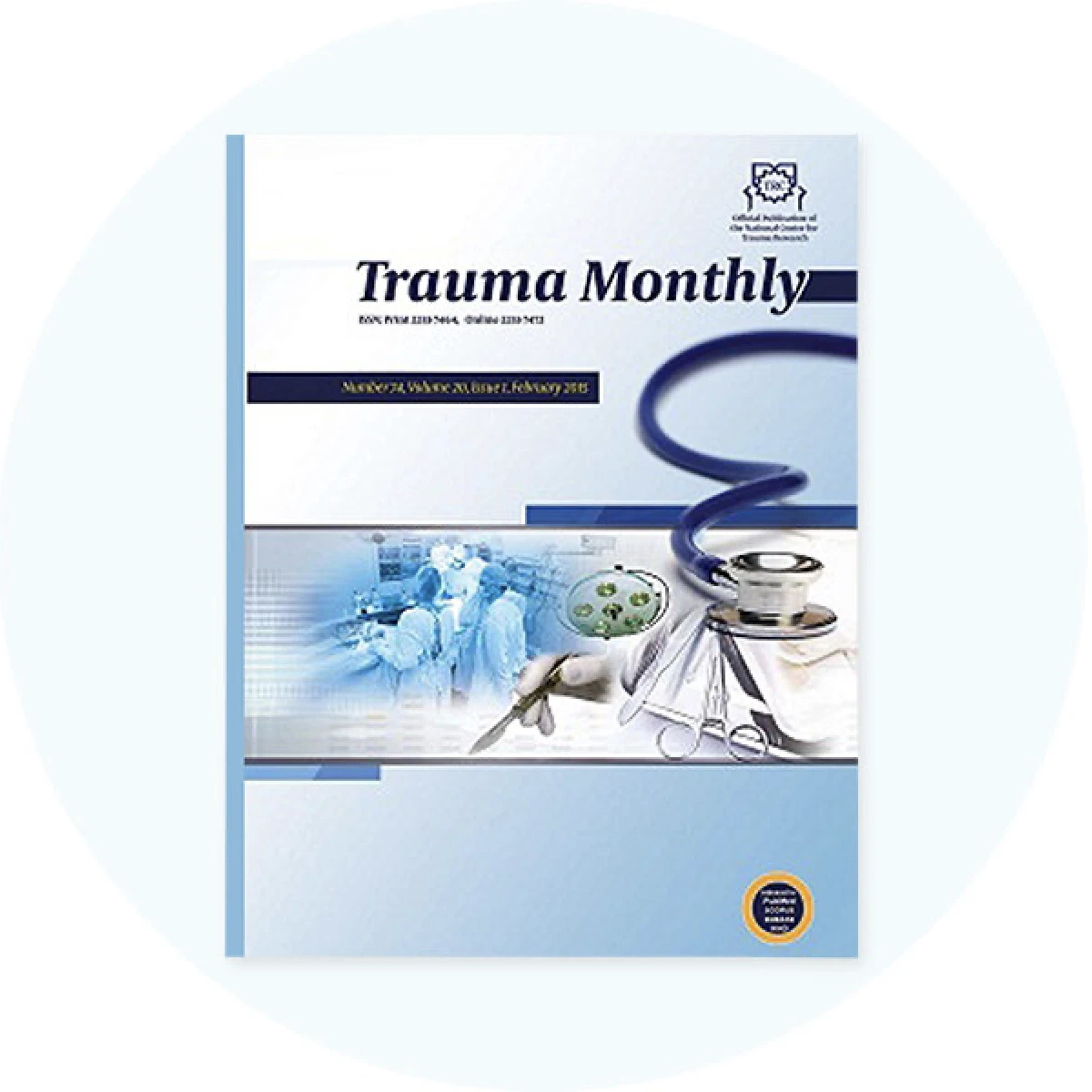 Magnetic Resonance Therapy Improves Clinical Phenotype and EEG Alpha Power in Post-traumatic Stress Disorder
Magnetic Resonance Therapy Improves Clinical Phenotype and EEG Alpha Power in Post-traumatic Stress Disorder
Why is this important? MeRT℠ showed statistically significant improvements (p<0.001) in PTSD Checklist-Military (PCL-M) in pre and post treatment scores. This was corroborated by quantitative-EEG findings demonstrating increased global alpha band power (p=0.013) and delta band decrease (p=0.028). These data show trends toward normalization of EEG and concomitant clinical improvements using MeRT℠ stimulation for PTSD.
Aerospace Medical Association
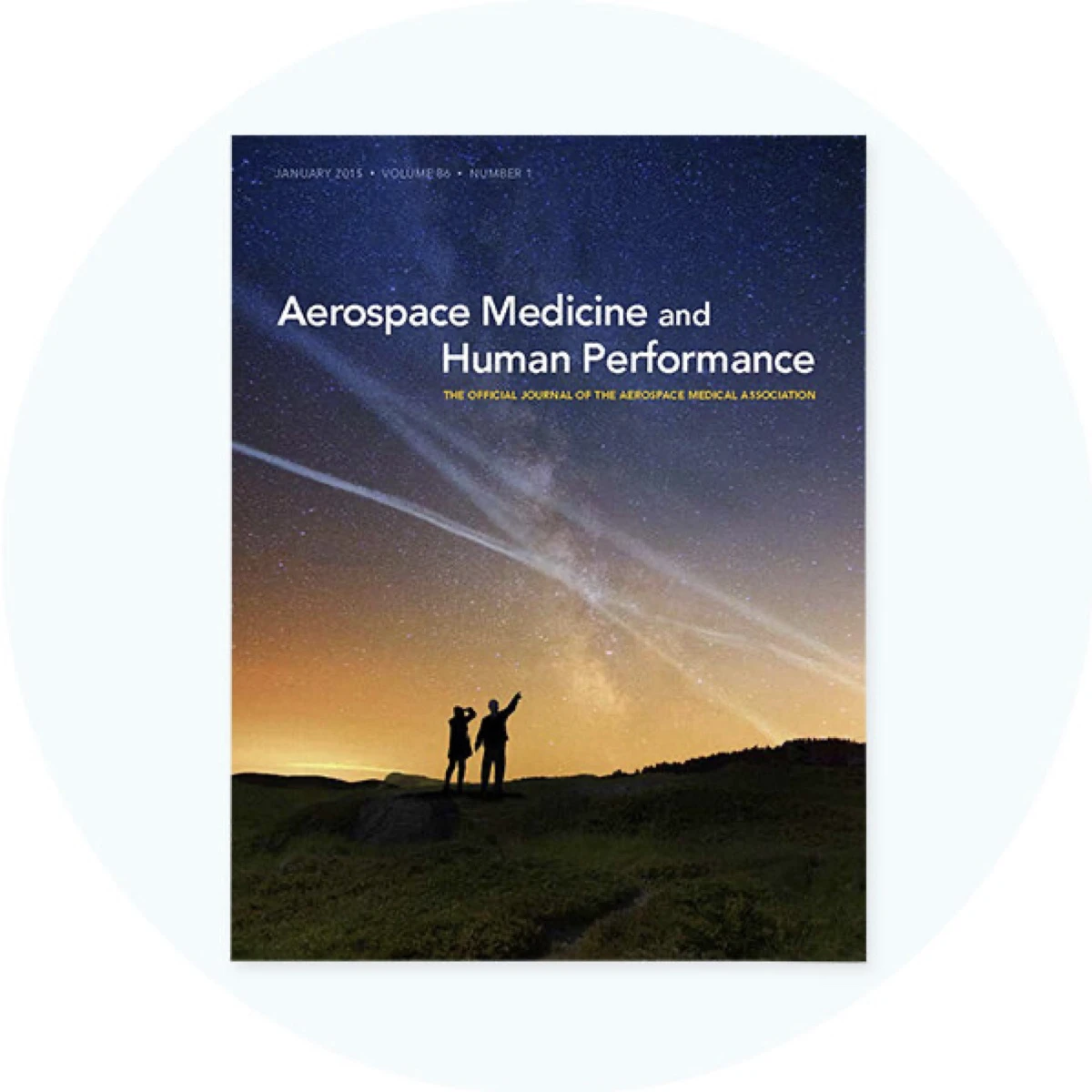 Magnetic E-Resonant therapy alleviates combat related post-traumatic stress disorder
Magnetic E-Resonant therapy alleviates combat related post-traumatic stress disorder
Why is this important? MeRT℠ may be a promising adjunctive treatment to help veterans suffering from PTSD.
EEG Support Documents
Cell Press
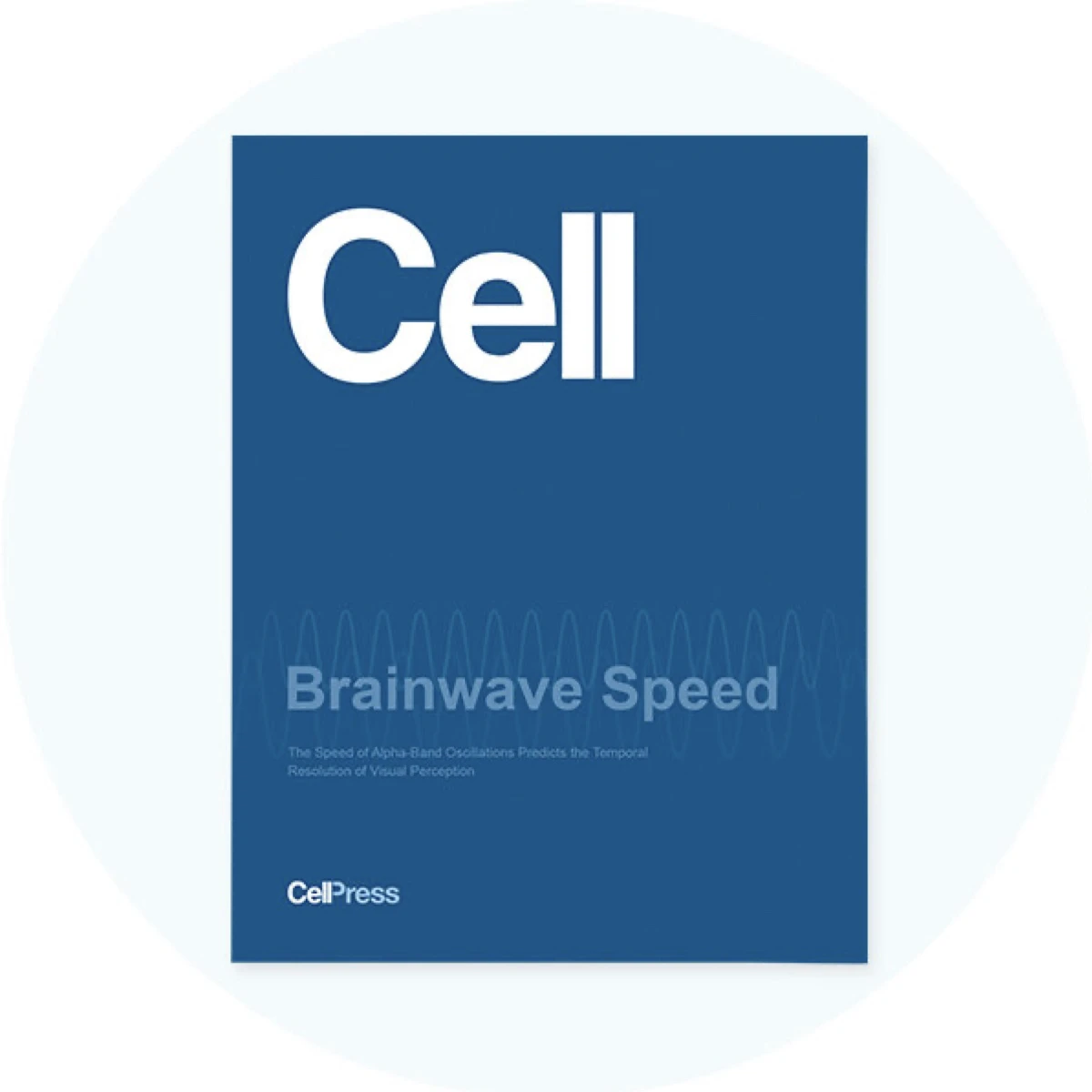 The Speed of Alpha-Band Oscillations Predicts the Temporal Resolution of Visual Perception
The Speed of Alpha-Band Oscillations Predicts the Temporal Resolution of Visual Perception
Why is this important? Brainwave speed and specific function relates to processing speed.
Dementia & Neuropsychologia
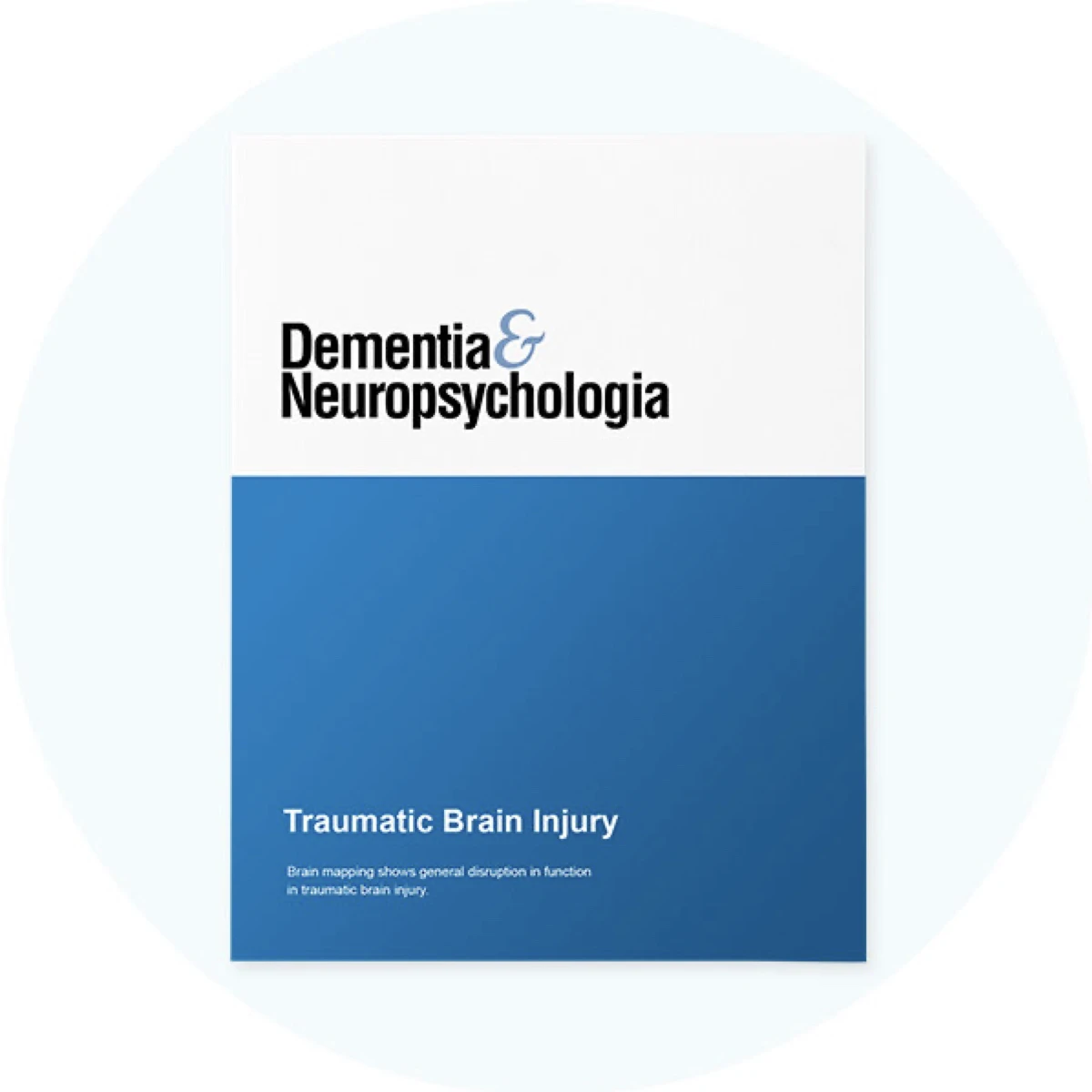 Traumatic Brain Injury: An EEG point of view
Traumatic Brain Injury: An EEG point of view
Why is this important? Brain mapping shows general disruption in function in Traumatic Brain Injury.
Neuromodulation Support Docs
Frontiers in Integrative Neuroscience
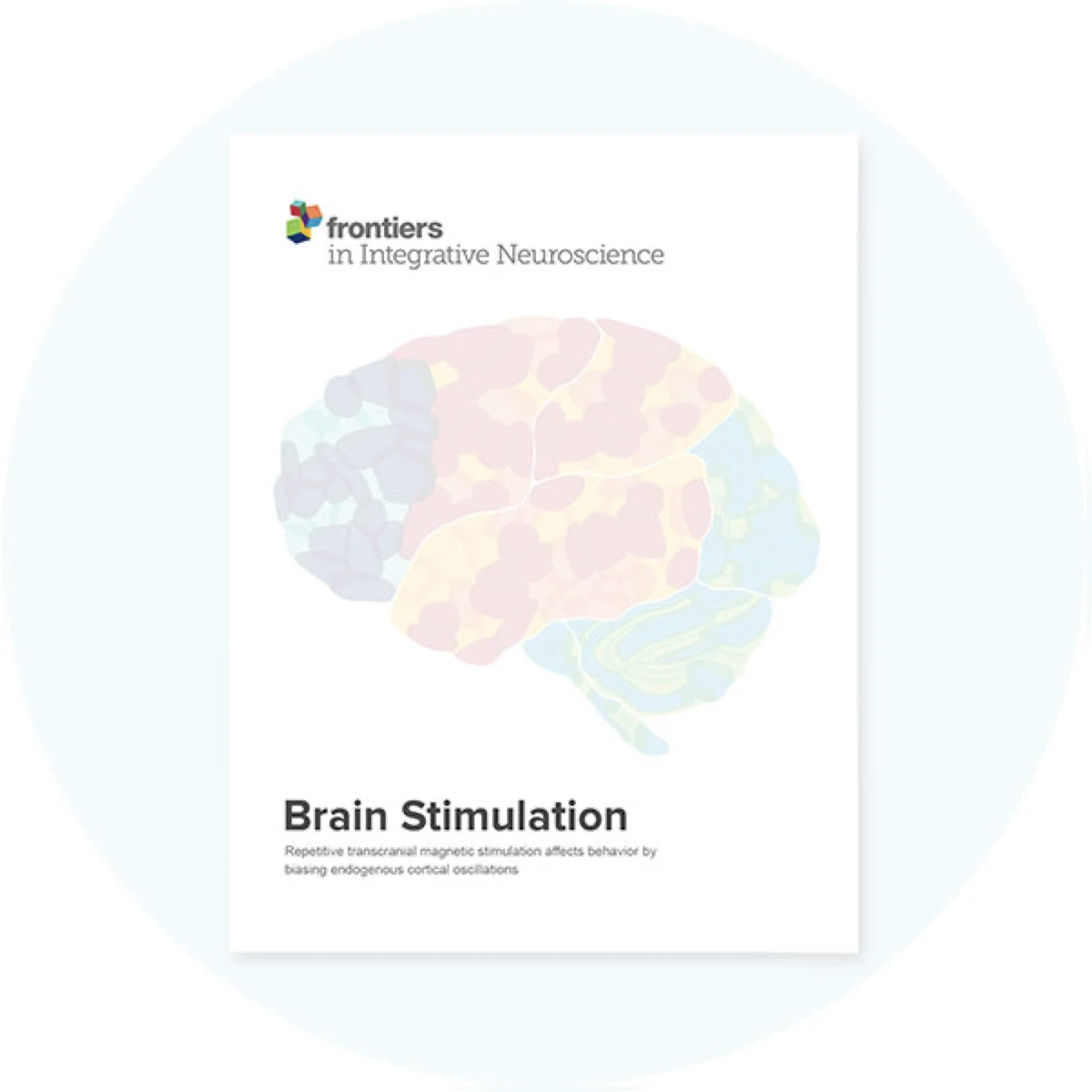 Repetitive transcranial magnetic stimulation affects behavior by biasing endogenous cortical oscillations
Repetitive transcranial magnetic stimulation affects behavior by biasing endogenous cortical oscillations
Why is this important? Brain Stimulation can affect function of stimulated brain tissue.
Current Biology
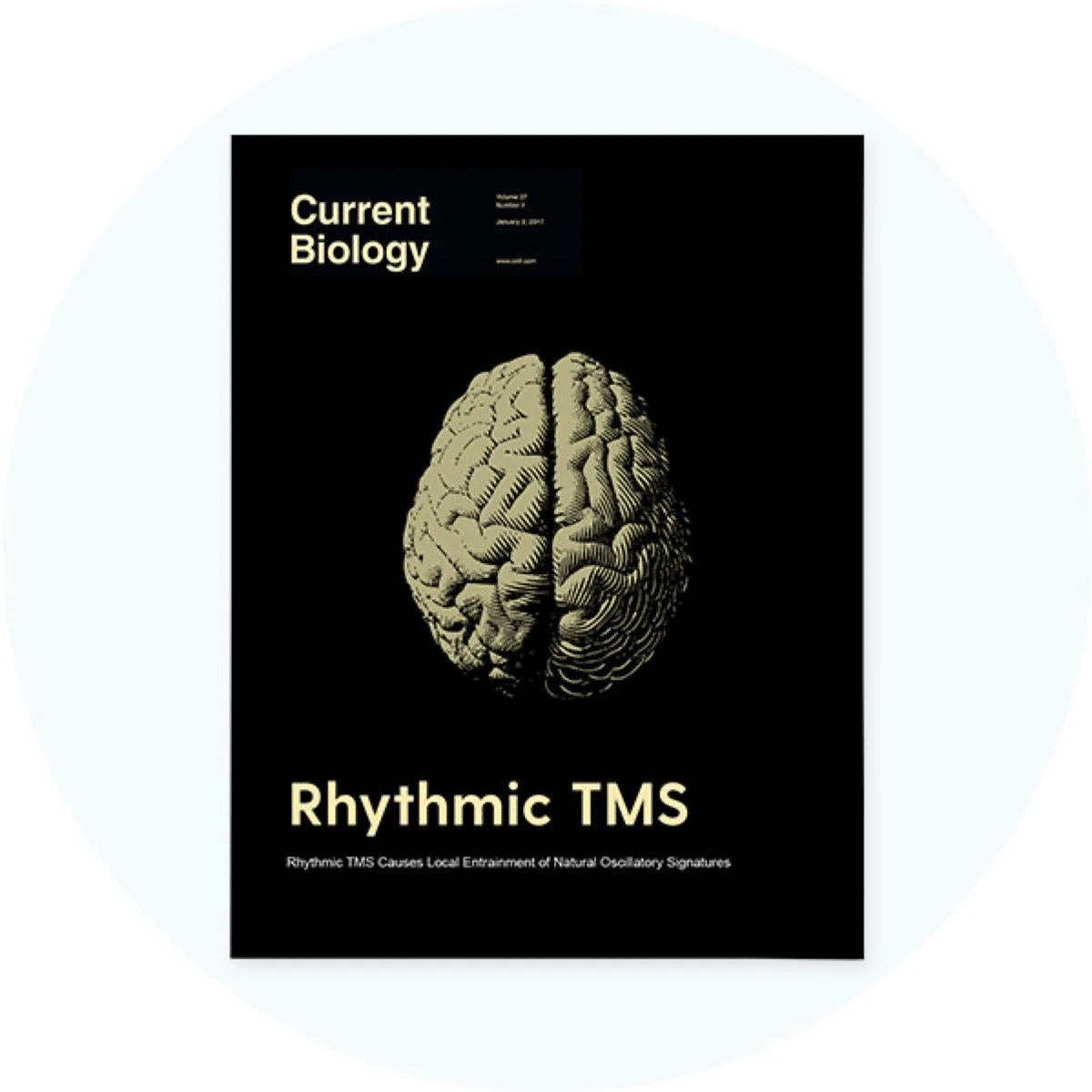 Rhythmic TMS Causes Local Entrainment of Natural Oscillatory Signatures
Rhythmic TMS Causes Local Entrainment of Natural Oscillatory Signatures
Why is this important? Brain Stimulation can affect function of stimulated brain tissue.
Frontiers in System Neuroscience
Making Waves in the Brain: What Are Oscillations, and Why Modulating Them Makes Sense for Brain Injury
Why is this important? Injury induced disruption of neuronal oscillations has profound impacts on neural connectivity and behavior. Changes in EEG can be used as a biomarker to confirm mild and moderate TBI.

